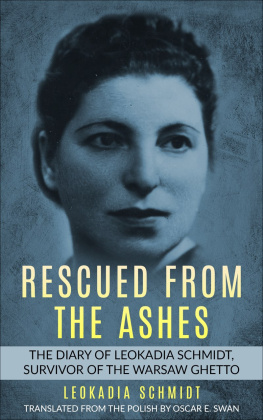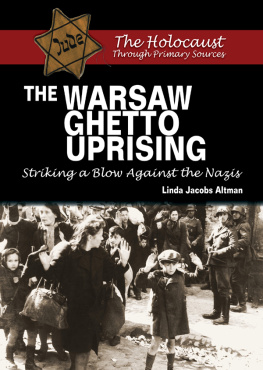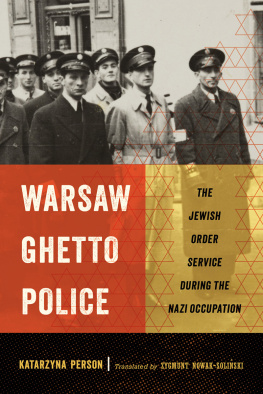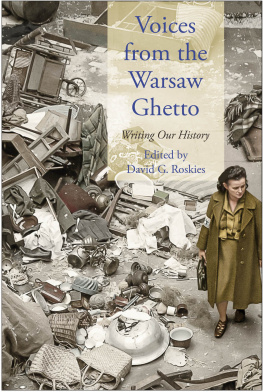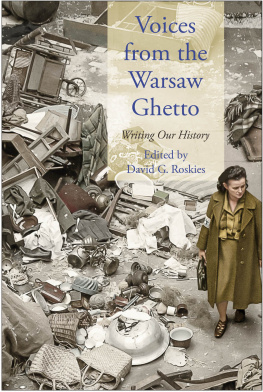Leokadia Schmidt - Rescued from the Ashes
Here you can read online Leokadia Schmidt - Rescued from the Ashes full text of the book (entire story) in english for free. Download pdf and epub, get meaning, cover and reviews about this ebook. year: 2019, publisher: Amsterdam Publishers, genre: Non-fiction. Description of the work, (preface) as well as reviews are available. Best literature library LitArk.com created for fans of good reading and offers a wide selection of genres:
Romance novel
Science fiction
Adventure
Detective
Science
History
Home and family
Prose
Art
Politics
Computer
Non-fiction
Religion
Business
Children
Humor
Choose a favorite category and find really read worthwhile books. Enjoy immersion in the world of imagination, feel the emotions of the characters or learn something new for yourself, make an fascinating discovery.
- Book:Rescued from the Ashes
- Author:
- Publisher:Amsterdam Publishers
- Genre:
- Year:2019
- Rating:5 / 5
- Favourites:Add to favourites
- Your mark:
- 100
- 1
- 2
- 3
- 4
- 5
Rescued from the Ashes: summary, description and annotation
We offer to read an annotation, description, summary or preface (depends on what the author of the book "Rescued from the Ashes" wrote himself). If you haven't found the necessary information about the book — write in the comments, we will try to find it.
The diary of a young Jewish housewife who, together with her husband and five-month-old baby, fled the Warsaw ghetto at the last possible moment and survived the Holocaust hidden on the Aryan side of town in the loft of a run-down tinsmiths shed.
Rescued from the Ashes — read online for free the complete book (whole text) full work
Below is the text of the book, divided by pages. System saving the place of the last page read, allows you to conveniently read the book "Rescued from the Ashes" online for free, without having to search again every time where you left off. Put a bookmark, and you can go to the page where you finished reading at any time.
Font size:
Interval:
Bookmark:
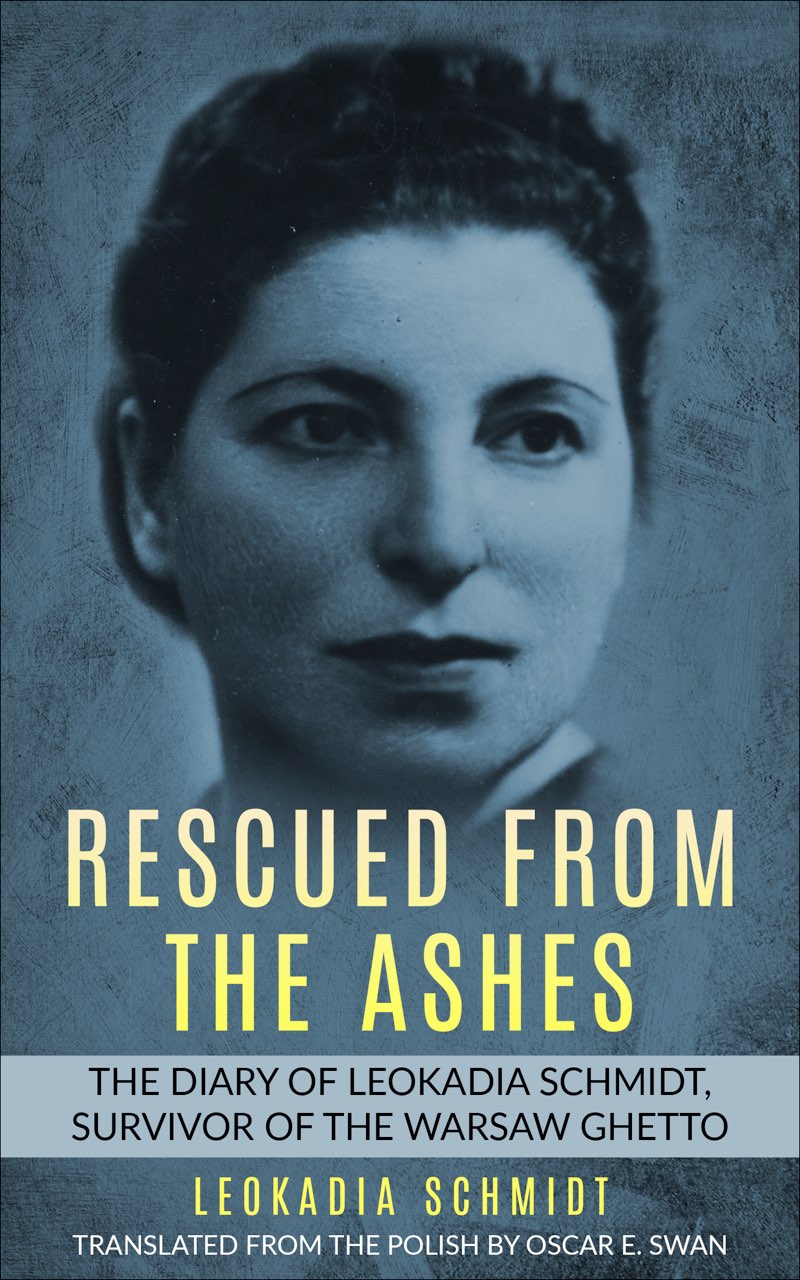

Copyright Heirs of Leokadia Schmidt, 2018
ISBN: 9789493056077 (ebook)
ISBN: 9789493056060 (paperback)
Translated from the Polish and with historical notes by Oscar E. Swan
Publisher: Amsterdam Publishers, Oegstgeest, the Netherlands
info@amsterdampublishers.com
Front cover: Leokadia Schmidt. Photograph for a temporary identity card issued on 25 February 1946 in Krakw.
All Rights Reserved. No part of this publication may be reproduced or transmitted in any form or by any means, electronic or mechanical, including photocopy, recording or any other information storage and retrieval system, without prior permission in writing from the publisher.
This work is dedicated to our two sons:
Kazimierz (Kenneth) and Marian (Mark).
I.
II.
III.
At the outset I would like to describe the circumstances which led to the writing of this book. In 1943, after being driven from one place to another on the Aryan side of Warsaw, we finally found shelter in a tinsmiths shop located on 27 Belwederska Street. It belonged to Antoni Michalski, the father of our protector. This was a time of relative peace and quiet for us. We had seemingly been able to cover our tracks from those who had been in pursuit of us, for the blackmail and denunciations to the police finally stopped.
The little factory which we had set up on the Aryan side was operating at a good profit. My husband spent most of the day preparing material for our workers, leaving me with nothing to do.
One day my husband suggested to me that I write down all that had happened to us since the time of the destruction of the Warsaw ghetto, beginning on July 22, 1942. These events had been burned into my memory in vivid and lasting detail. We realized full well that our chances for survival were minimal. Our main idea was to leave our child a description of Hitlers horrible crimes, of the grisly and sordid extermination of the Jews.
We presented this idea to our benefactor, Henryk Michalski, who took up the idea with enthusiasm. Next day he brought me several notebooks. Our good friend Zygmunt Dobosz, as always, was of the greatest help. He hammered together a makeshift table and dug up a chair for me somewhere.
In this way I set out to describe the terrible experiences we had lived through. Every morning my husband and I would go over in sequence the events leading up to the destruction of the ghetto, as well as subsequent events in the Karl George Schultz Shop (a prewar hosiery and undergarment factory within the so-called BRO-RO (Braun & Rowiski) firm. It was located on 78 Leszno Street. My husband had worked in this shop while the ghetto was being liquidated.
As time went on I warmed to the task and derived a great deal of satisfaction from describing these events and incidents and from knowing that we, living witnesses of what had happened, were leaving to the world and to future generations a description of the heinous crimes of the Nazis as they applied their "infernal machine" to the destruction of the ghetto.
The Germans, with characteristic overweening pride, had always called themselves the "master race" and a "nation of poets and thinkers," and pretended to have attained a lofty level of culture and civilization. Now they had shown a horrible face that I could never have imagined before the war, but the world was silent and allowed them to perpetrate their terrible crimes without protest. With each new day more innocent and defenseless blood was shed, and no one seemed to care.
My husband was a great help to me and always encouraged me to write. Henryk Michalski also contributed a great deal. Each day he brought us the daily papers and the illegal newspapers published by the underground resistance. For my part, I tried to describe all events, both in the ghetto and on the Aryan side, as exactly and as objectively as possible, selecting as my model simply the course of everyday events. I am not a professional writer and I harbor no pretentions as to my skill in this area.
I would like to mention that all names of people, whether from the ghetto or from the Aryan side, are real. I tried to present everyone as neutrally as possible on the basis of my personal observations and experiences.
Time slowly passed, and before long I had filled three thick notebooks. The uprising which broke out on the Aryan side on August 1, 1944 forced me to interrupt my work. My husband and Zygmunt, who was living in the same building, carefully enclosed our notes in a tin box and buried it deep in the ground beneath the workshops rubbish room.
After the liberation in January 1945, Zygmunt was the first to return to Warsaw, which had been almost completely burned and destroyed. The building on 27 Belwederska Street shared the same fate as the others: only burned ashes remained. Everything we owned had perished in the conflagration. The only thing that was saved was our diary, which Zygmunt uncovered and handed to my husband at their first meeting. We had also buried a large collection of papers from the underground press which my husband had carefully collected. Zygmunt, fearing that they might fall into the hands of the Soviets, who were hostile to the AK (the underground Home Army),and that this might result in unpleasant consequences, burned them all. The only paper to be saved was a communication from the NSZ (National Armed Forces) describing the fighting during the ghetto uprising in April 1943. After the war, my husband guarded these notes like the apple of his eye.
When we left Poland in 1946, legally, as tourists headed for Paris through Prague, we were afraid that customs officials on the Czech-Polish border would try to confiscate them. Fortunately, none of our baggage was opened.
After a years stay in Paris we emigrated to Venezuela, in search of a quiet little corner of the world. It seemed we were always starting life over again from scratch. Finally, in 1962, after a long and wearisome journey, we came to the United States which, as a loving mother, gathered us to its bosom and granted peace and consolation to our aching hearts. Our first years in this country were not easy. We were particularly troubled by our not knowing the English language. However, in time we overcame even this difficulty. In 1966, we settled permanently in Phoenix, Arizona, and my husband began encouraging me to finish my diary.
The events beginning with the Warsaw Uprising on August 1, 1944 until our liberation in January 1945 have been described from memory. My husband and I would sit and recall to one another all the facts, details, and events we had been through.
My husband typed the entire manuscript on an English typewriter, which was not very successful due to the lack of Polish diacritical marks. Then we bought a Polish typewriter especially for this purpose and retyped the entire book. All of this work together took more than two years. My husband subsequently retyped the entire English translation onto clean paper, which took more than a year.
At this point I would like to extend our thanks and appreciation to Dr. Oscar Swan, Professor of Slavic Languages, formerly of the University of California, Berkeley, and now of the University of Pittsburgh in Pittsburgh, Pennsylvania, for translating this book into English. We greatly value the time and immense outlay of effort that went into the translation.
Font size:
Interval:
Bookmark:
Similar books «Rescued from the Ashes»
Look at similar books to Rescued from the Ashes. We have selected literature similar in name and meaning in the hope of providing readers with more options to find new, interesting, not yet read works.
Discussion, reviews of the book Rescued from the Ashes and just readers' own opinions. Leave your comments, write what you think about the work, its meaning or the main characters. Specify what exactly you liked and what you didn't like, and why you think so.

